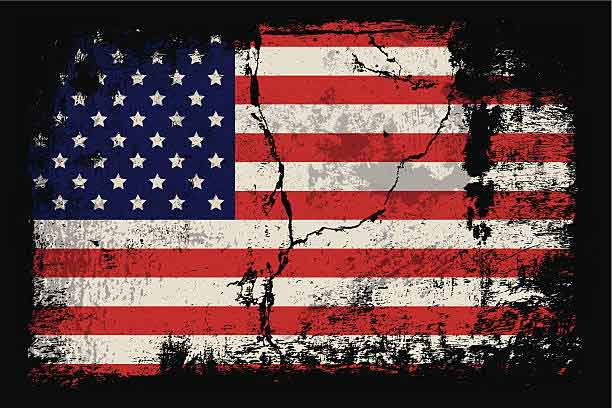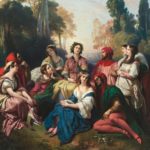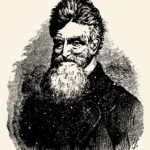
How did we become this anyway?

Does the zeitgeist churn up the villains it deserves, or do the villains create the zeitgeist?
In the mid to late Sixties, along a cultural fault line running somewhere between Saigon and Akron, Ohio, villainy had an uncanny way of mixing up with what was happening in the street. Let’s take, just for the fun of it, Batman: not the comic book or movie franchise, but the old tv series. The series ran from 66-68 and at its peak was broadcast into half the living rooms in America. The cartoony villains in the cartoony show rained terror upon the city of Gotham, and concocted Byzantine plots to foil and eviscerate the Caped Crusader—all the while adorned in outlandish multichrome costumes that seemed to align with the generation’s playacting style. It was good gaudy fun, and seemed somehow connected in parody to the self-doubt beneath the era’s optimism.
Villainy is often theater, of course, with an extra dash of personality disorder. Just think John Wilkes Booth with his Latin and his bloody dagger— But even before you get to Batman, the twentieth century had had its share of over-the-top cartoony villains—If you ignore the most concerted mass slaughters in the history of the world, Hitler and Stalin in their jerk-off fetish- fantasy uniforms are as close to clowns as you can get. But as the 70s took hold, villainy, so it would seem, shed its more garish extravagances, developed a more stolid fashion sense, favoring off-the-rack suits, regulation bureaucrat haircuts, looming five o’clock shadows. The era’s most notorious exemplars, Nixon, Haldeman, Ehrlichman, Mitchell et al, came into national consciousness as get-the-sale-at-any-cost used car hawkers of the American psyche. 50s guys you’d see at the end of driveways. And in a certain lights, they also appeared to be, like John Calhoun or Aaron Burr or Robert E Lee of earlier generations, moralists of a particularly American order, fallen idealists, possessing elements of tortured Shakespearian, Miltonian, self- flagellation. I picture Nixon/Richard III, with a single light on in the White House, whispering to his own soul, ear cupped for an answer that never quite comes. Perhaps there’s no more chiaroscuro image in the history of the US presidency than that of the 37th President rattling around the East Wing one May morning at 4 am, blasting Rachmaninoff, then venturing out to the Lincoln Memorial just as the sun ekes over the Potomac. On the Memorial’s steps, students eye the glowing tips of their cigarettes, protest signs on their shoulders, as Nixon steps out of the Presidential limo. “I know probably most of you think I’m an SOB,” says the lonesome man. “But I want you to know that I understand just how you feel.” Secret Service men, dark glasses in pockets, establish a permeable perimeter. The students shuffle forward, posing questions he’s in no position to answer. His Republican suit binds at the shoulders.
Whatever else, the zeitgeist of the early 70s did seem to conjure a Nixon-like character, a symbol of Americans’ war against their own identity, and a parody of anti-parody with a talent for incredulity… In November 72, Nixon was reelected by a landslide, but a few years later a pissant break-in operation, paranoid cover-up and popular resistance to the notion of an imperial presidency, had taken down the President. And one morning in August of 74 the only President in US history ever to resign strode across a chintzy White House red carpet, flashed defiant Vs for Victory on both hands, stepped into an old army helicopter, and was hastened away over the Lincoln Memorial. Richard III was flying coach.
I apologize for the lengthy preamble. Bear with me. Sometimes an oblique approach gains higher ground. For a while now I’ve been wanting to expand upon a subjective perception I’ve had viz the current sitting president, but thus far what I’ve wanted to say has remained inchoate to me. But encoded in its inchoate quality, I’ve been hoping, is a key to getting at the same essentiality that can be attributed to Nixon. On January 20, 2017, the movers showed up and dumped Trump’s gilded toilet, fake Renoir and adult kids off on the White House lawn, and since that day habitual contextualizers, including me, have been hard pressed to contextualize the President’s place in the zeitgeist. Like penitents at a shrine we recite over-familiar flaws (bigotry, sexual brutality, narcissism, mental instability and/or incompetence, demagoguery, collusion, personal corruption etc etc etc) and hope for, if not necessarily expect, miracles of understanding to ensue. Our need for outrage is satiated temporarily; but gains in personal satisfaction come at the expense of public meaning. Of course there have been outpourings of public resistance to the new administration—protests, court injunctions, a million daily snickers, impotent impeachment proceedings—but as observers of Trumpian villainy we sometimes lose context in dense thickets of specificity. The more obsessively we tally evidence of his gross malfeasance, the farther away from its essentiality we seem to feel, or at least I do. Nixon’s sins seemed tied to a flawed character that could make one of the great protagonists of the twentieth century; Trump’s wickedness exists outside accountability, an ambient one-dimensional corruption that stymies investigation, criminal and psychological.
In affaires politiques, I generally default to the grand overview that many former history majors like me tend to take. According to the meta-narrative, grandees of politics from Pericles to Nixon reveal their ideas, flaws, ambitions, exert influence—and are thence mulched into the historical soil. Over time the dead grandees’ status may rise or fall, some new iteration of an old grandee may appear, like a straggly weed from a spared seed, and we will believe, comfortably, dutifully, that the present is to be construed out of the past’s inhering logic. But for many liberal, ruminant political bystanders, the 2016 election results made us wonder what the hell history’s logic had prepared us for. Trump was an outlier in the comfortable story about the Republic many of us had always told ourselves. He was mentioned in polite company only out of necessity, dismissed with a small cough into a hand. Every word the man spoke elicited cellular level revulsion in many folks who had accepted that the American government ran, with some few exceptions, on a bumpy but fairly predictable course.
Our verdict had been political, of course, in the the word’s most basic sense. But more than political the verdict was, arguably, aesthetic. I mean, let’s face it, on Batman, it was the Joker’s fashion sense, his self-aware anarchicness, that separated his villainy from that of run-of-the-mill larcenists and embezzlers. It elevated him to a special order of bad guy. Trump’s own vain costume (the crotch-length neckties, rehearsed scowls, tangerine makeup, Marie Antoinette combover coiffeur), on the other hand, possessed none of a cartoon villain’s self-satire and joyful mayhem. “Trump’s symmetrical but overlong tie,” says a Stanford scholar, “stands out like a rehearsed macho boast, crass and overcompensating.” It’s a jokeless joyless style, a bragging stuck-out tongue of a tie, incapable of processing irony, and void of darker dimensions of Nixonian tribulation—not only bad but tedious—not only odious but malign—an existential threat to the commonsensical decency Americans want to believe characterizes their finest impulses.
“You can always count on a murderer for a fancy prose style,” says Humbert Humbert in Lolita. Trump has no prose style (he’s functionally illiterate), and Nabokov could wield his own ornate prose style of course, but here’s the point: how often bad taste does coincide with bad faith. Nazis built grotesque monuments to themselves, drug lords and Wall Street novitiates adorn their wrists with watches the size of Volvos. Trump would gild oxygen if he could. Let’s say, as Heraclitus does, that Ethos anthropos daimon. Character is fate. Fate is style. Style is matter. Here is Trump, risen to the highest office of the land, interpreting his triumph as vindication of the venal know-nothing style. He’s absorbed into his corpuscles the knowledge mob bosses have.
That corrupt character, the bragging tie, can lead to a decent living too.
At the center of Trump’s I-know-you-are-but-what-am-I-ism is a question of identity. What am I? Who am I? Am I nothing? Negation presented as a question. A plea. An admission. For some writers, the presentation of this vacuity as affirmative good could make premium raw material. Pundits type as fast as he manufactures fresh outrage. Late-night comedians feast on the carcass. But from a dramatist’s perspective, what matter can be made of such character? What fresh insight would a reader gain from a novel about a soulless protagonist? A few possible angles of approach suggest themselves. There’s the political, of course. Plausibly, Trump could be sketched as the logical extension of Joe McCarthy and Roy Cohn (Trump’s mentor, and McCarthy counsel/acolyte), a modern instance of demagogic tradition in American history. But Tail Gunner Joe was a maniacal prosecutor of chimeras, a perverse idealist. Too busy trying to fill the void, one guesses Trump couldn’t care less about Constitutions, governments, or chimeras for that matter. Still, the novelist or screenwriter must occupy her pages with something to engage the reader’s sympathies. The Empty Man, the feeblest of Strong Men, must somehow be relatable.
Once in passing I’d imagined writing a novel about a Trump-like huckster. I went so far as to work out the peripheral characters, how the plot would play out against an arc of the American political scene. Maybe my Trump could have a moment like Nixon’s, rattling around the East Wing at odd hours, wading into the crowd at the Lincoln Memorial, trying to plumb the depths of a quiescent soul. A cadre of vile yay-sayers would round out the dramatis personae. Kelly Ann, Javanka, Paul, Vlad, Sarah, the Mercers, the Kochs, the Steves, Spencer, Ann, Roger…. Uniform in their insatiable lust for power, these characters exude multitudinous villainy. They’d circle the Oval Office, offering flattery, procuring reality tv celebrities and porn stars for the President, helping to undo the achievements of his arch-nemesis, the coffee-colored foreign-born ex-. A twisted little lizard, Stephen M—Iago, Robespierre, Uriah Heep—so close to power he tastes it like bile in the back of his throat, writhes, kisses the ring. Javanka corners Bannon in a West Wing bathroom, threatening to kill his dog if he doesn’t surrender his FBI clearance and wipe the President’s cell number from his phone before the toilet finishes flushing. Ann, throwing back her patrician mane, chortling in self-adoration, slips poison into Andrew Sullivan’s breakfast cereal. Kelly Ann—a Jersey mob wife trying to return last year’s sweater at Nordstroms—pushes past the clerk and assistant manager, waving the old sweater like a flag. All doing their own jazz riffing on any misplayed presidential bleat. But the exercise of writing such a book, while possibly diverting, seemed entirely misbegotten, you might as well try writing a novel about a vacuum.
Demoralized, unsure where to start, I set the project aside.
What claim hath any villain to the zeitgeist anyhow? Historically, Americans’ taste in villains has run from charismatic rebels who cruised the country lanes and shot up the road signs (Bonnie and Clyde, the Joker), to antinomian demagogues who would tear down the temples (Daniel Shays, Ann Hutchinson, Father Coughlin…). Engendered in the country’s Jeffersonian Revolutionary spirit has always been a fetish for destruction as a means of renewal—the restoration of an ancient white-pillared America that never really did exist. In this light, the Trumpian moment is nothing new. John Calhoun, William Jennings Bryan, Father Coughlin, Sarah Palin were progenitors. Indeed, one is sure Trump hardly is aware of historical precedent (I’d bet his bogus fortune he’s never even heard of William Jennings Bryan). An accidental populist, he’s an unwitting, vacuous vehicle for populism’s most toxic Coughlin-, Palineque strains. To my mind, the pressing question, however, is whether casual brutality endures as the defining fashion of the zeitgeist, warping our national psyche, or shall it be buried along with the corpses of McCarthy and Coughlin and Trump, remembered as a fleeting deviation from commonsensical decency?
Let’s not attribute to pathologies what might be attributed to chance. Maybe in fact we’re too quick to accord Trump the ambient influence he believes his birthright. Sure, Senate and House Republicans who should know better have made an unholy alliance with him, furthering their own agendas, becoming accomplices. But as a demonstrably unpopular populist (losing the popular election by 2.9 million votes), he was churned up for any number of reasons (identity politics, vagaries of the electoral college, crooked gerrymandering…) that disqualify him as the people’s legitimate representative, and, lest we forget, a change in three or four counties countrywide would have flipped the electoral results too. Thesis creates antithesis. The rickety old democracy, we like to think, exerts its old normative self. The king rides naked through the streets, proclaiming his preeminence. But Executive Orders are overturned. Paris accords remain in effect. Little Stephen Miller, hissing on tv, is escorted from the building, kicked to the pavement. The press returns fire. Investigations grind on. Senators vote on evidence. Impeachment prevails. Alec Baldwin hilariously upends blow hardism. The crotch-level tie is scorned. Crassness and villainy may hold sway for now, but a counter movement pushes back, an exuberant and inspired opposition engaged in democracy. The Republic, in greater jeopardy than any time since Nixon’s, or perhaps since Reconstruction, struggles to re-right itself, and, if history can be regarded, the Republic may survive the threat, and may yet endure for another few hundred years. Let us pray.
Zeitgeists are not kind to their villains.







